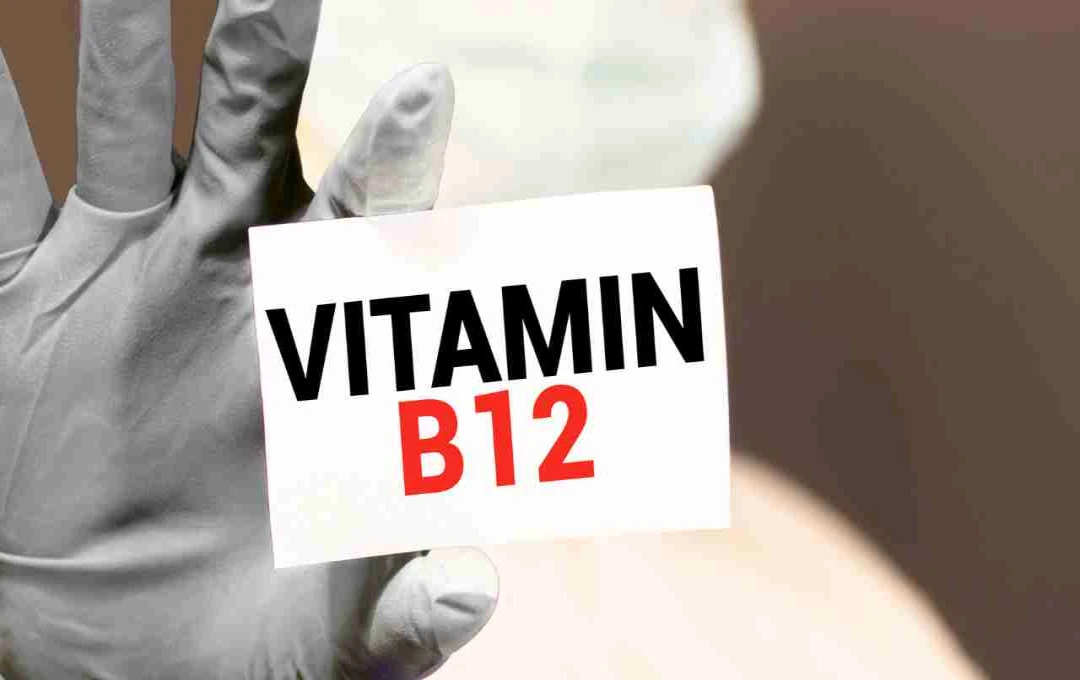Vitamin B12 deficiency can have a serious impact on the body. Its symptoms include fatigue, weakness, pale skin, tingling in the hands and feet, and mood changes. If left untreated for a long time, it can cause problems like anemia and dementia. Meat, fish, eggs, and dairy products are good sources of it.
Vitamin B12 Deficiency: When there is a deficiency of Vitamin B12, the body gives various warning signs that are important to recognize. This vitamin plays a crucial role in the formation of the brain, nervous system, and red blood cells. Its deficiency can manifest as symptoms such as fatigue, weakness, pale skin, numbness in the hands and feet, and impaired memory. If not addressed in time, the risk of anemia and mental health issues increases. According to experts, Vitamin B12 deficiency can be replenished by including meat, fish, eggs, dairy, and fortified foods in one's diet.
Increased Fatigue and Weakness
The first effect of Vitamin B12 deficiency is seen in our energy levels. Persistent fatigue and weakness are considered its primary symptoms. In reality, this vitamin helps in the production of red blood cells, which are responsible for delivering oxygen to every part of the body. In case of deficiency, cells do not receive sufficient oxygen, causing muscles and tissues to weaken, and the body to feel tired.
Pale Skin

If Vitamin B12 deficiency persists in the body for a long time, its effects become clearly visible on the skin as well. The skin may turn pale or sallow. In fact, reduced production of red blood cells leads to a condition of blood deficiency, or anemia. Additionally, bilirubin, a substance formed from the breakdown of red blood cells, accumulates in the blood. This substance causes the skin and eyes to turn yellow.
Tingling and Numbness in Hands and Feet
Vitamin B12 is crucial for nerve health. In its absence, the nervous system cannot function properly. This leads to tingling, a pins-and-needles sensation, or numbness in the hands and feet. Sometimes, this problem becomes so severe that a person starts having difficulty maintaining balance. Stumbling while walking can also be a sign of this deficiency.
Impact on Mood and Mental Health
Vitamin B12 is equally important for brain health. Its deficiency directly affects mood and cognitive abilities. People often struggle with problems like memory loss, difficulty concentrating, confusion, and mood swings. If not addressed for a prolonged period, the risk of serious conditions like dementia can increase in the elderly.
Changes in Tongue and Mouth
Sometimes, the deficiency of Vitamin B12 also affects the tongue and the inside of the mouth. Burning or pain on the tongue, changes in taste, and frequent mouth ulcers can be indicators. This problem often arises when the deficiency persists for a long time.
Heart Palpitations and Breathing Difficulties

Vitamin B12 deficiency reduces the number of red blood cells. This prevents adequate oxygen supply to the body's organs. As a result, a person may experience rapid heart rate or shortness of breath even after mild exertion. This situation often arises when the body requires more energy.
Deficiency Can Be Fulfilled with These Foods
Vitamin B12 is primarily found in non-vegetarian foods. To fulfill its requirement, eggs, meat, fish, and dairy products like milk, cheese, and yogurt can be included in the diet. For vegetarians, fortified foods available in the market, such as cereals and soy products, are considered good options.
It May Take Time for Effects to Appear on the Body
Vitamin B12 deficiency affects the body gradually. Often, people ignore it in the initial stages and consider fatigue or weakness as normal. However, when these symptoms persist and are accompanied by changes in skin color, numbness in hands and feet, or affected mental health, it is a clear indication that the body is not receiving enough Vitamin B12.















